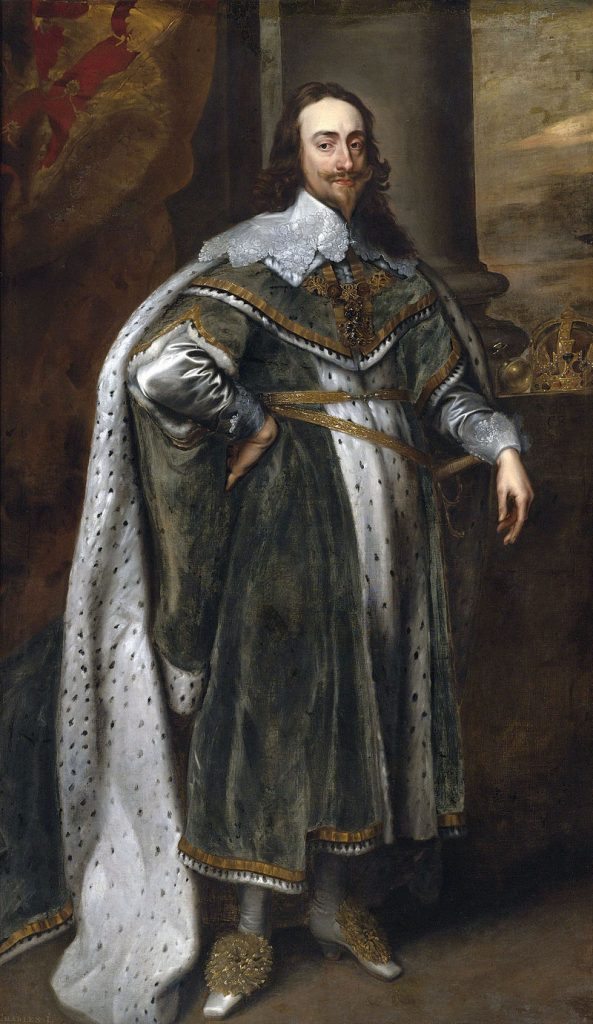When British Brennus Sacked that Noble City
Lodge nor sex, nor Infants he show’d pity
Then those which did the capital defend
Weighed out their gold to have their sufferings end
On which the Brittain bold his sword did lay
Woe to the Conquered then the People say
Then came Charles, Banished long before
And made the Brittains pay the Romans score
Soe let all impious sacrilegious men
Have lex talionis Heaven say thou Amen
If any underneath the sun may cry
Voe victis leader it is thou and I
C: C: Killed and Banished we with sad hearts deplore
Oh let a Charles come and our Joys restore
For Charles his sake dear God I thee implore
Or we are slaves to Charles evermore.
“Charles and Charles, Killed and Banished”
– By John Goodpasture
Charles I was king of England from 1625 to 1649, when he was executed on orders from Parliament. His execution was an expression of the power of Parliament, but his replacement by his son Charles II proved that Parliament did not yet have the authority to control the kingdom alone. The poem expresses a contemporary sentiment that many of the English nobility held – that Parliament should look to the reasons why it executed a Charles I before they reinstalled a new king so soon.
“Eternal Empires”
– By John Goodpasture
“The sun never sets on the British Empire” – this was a colloquialism born of the days when the British Empire was the largest, wealthiest and most powerful nation the world has ever seen. Hester Pulter wrote in the the early part of this era, and alludes to it in her poems. In this particular poem, she invites comparisons between the British Empire and the Ancient Roman Empire by comparing Gallic conqueror Brennus’ seizure of Rome to Parliament’s gaining control of London.
"Brennus." Britannica Academic, Encyclopædia Britannica, 5 Aug. 2019. academic-eb-com.colorado.idm.oclc.org/levels/collegiate/article/Brennus/16353. Accessed 30 Nov. 2019.

